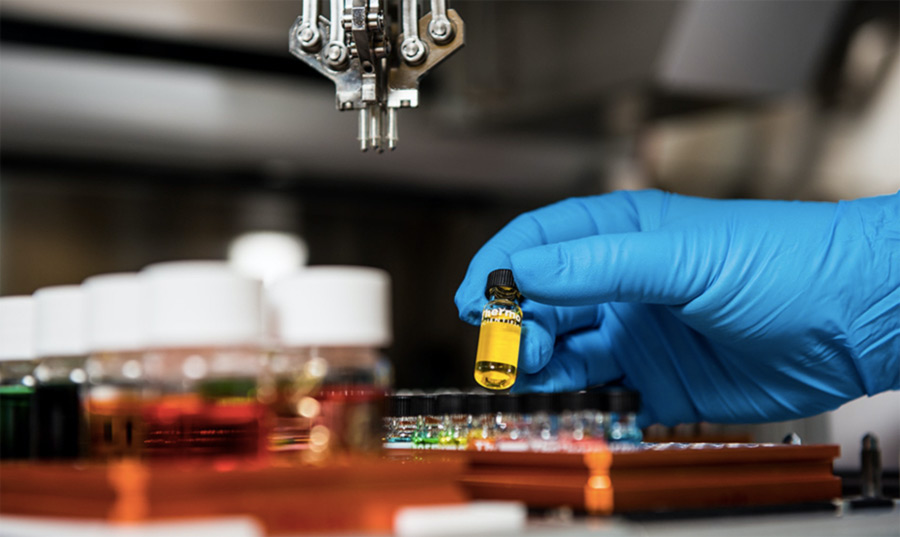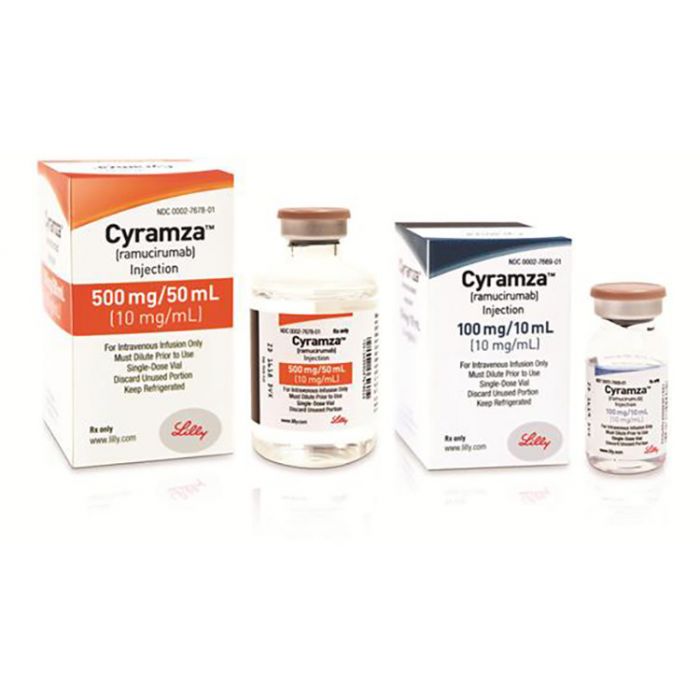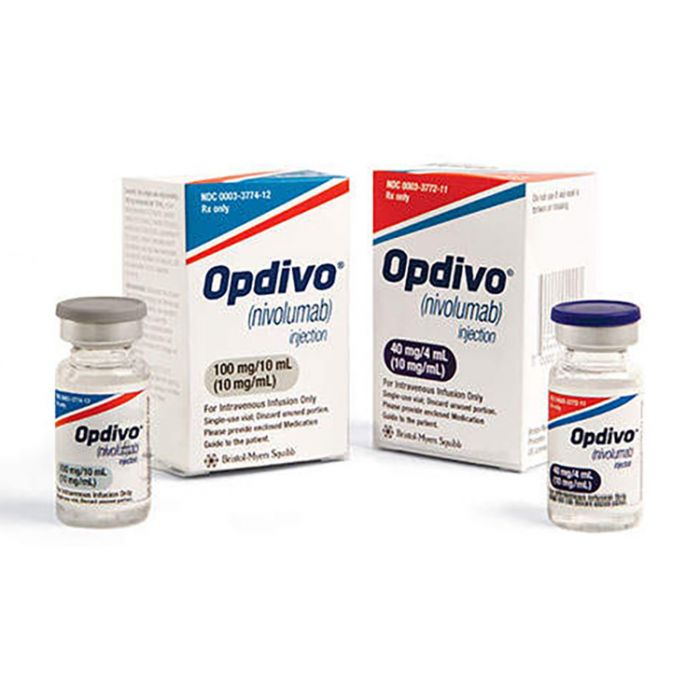New Colorectal Cancer Treatments 2022
Last updated: 13 November 2023

You can legally access new medicines, even if they are not approved in your country.
Learn howWhat is colorectal cancer?
Colorectal cancer or colon cancer is cancer of the large intestine (colon), which is the final part of the digestive tract. Both colon cancer and rectal cancer can be referred to as colorectal or bowel cancer, but there is a slight difference between the two based on where the cancer begins. If the cancer is located in the first four to five feet of the large intestine, it is colon cancer. If it is located in the last portion of the colon, it is rectal cancer. Most cases of colon cancer begin as small, noncancerous (benign) clumps of cells called adenomatous polyps. Over time some of these polyps can become colon cancers. Polyps may be small and produce few, if any, symptoms.
When colorectal cancer is found at an early stage before it has spread, the 5-year relative survival rate is about 90%. But only about 4 out of 10 colorectal cancers are found at this early stage. When cancer has spread outside the colon or rectum, survival rates are lower.
Unfortunately, about 1 in 3 people in the US who should get tested for colorectal cancer have never been screened. This may be because they don't know that regular testing could save their lives from this disease, or due to things like cost and health insurance coverage issues.
What are the types of colorectal cancer treatments available?
If a screening test detects a polyp that is potentially cancerous, surgery is the first treatment. However, if cancer has already developed, treatment is based on the stage to which it has advanced: Stage 0: The cancer has not grown past the inner lining of the colon and surgery is generally all that is needed.
- Stage 1: The cancer has grown into the colon wall but has not yet grown outside the colon. If surgery has successfully removed the entire cancerous polyp, no additional treatment may be needed. If, however, some cancer cells remain (if the polyp could not be removed completely), or if the polyp is considered “high grade” (how similar to normal tissue the cancer looks), further treatment will likely be needed.
- Stage II: The cancer has spread to the outermost layers of the colon or rectum but has not yet reached the lymph nodes.
- Stage III: The cancer has spread to the lymph nodes but not to other parts of the body.
- Stage IV: The cancer has spread to other organs.
Once it has been determined to which stage colorectal cancer has advanced, treatment options can be discussed. Some options include the following:
- Colonoscopy: a polyp is surgically removed.
- Laparoscopy: a thin tube is inserted via slits made in the abdomen that enables the surgeon to remove the part of the intestine and any lymph nodes that are cancerous.
- Open Surgery: the surgeon makes a large cut in the abdomen to remove the tumor, lymph nodes and portions of the intestine that are affected.
- Radiation: the use of targeted, high-energy rays to kill the cancer. This is rarely used for treatment of colorectal cancer.
- Biological therapy: when the cancer has spread, some patients opt for this form of treatment and receive a type of antibody that binds to the cancer cells. Once this occurs, the antibodies help stop the growth of the cells.
- Chemotherapy: medicines that kill cancer cells are injected into the bloodstream.There are different types of chemotherapy drugs for colon cancer.
- Immunotherapy: designed to boost the body's natural defenses to fight the cancer by using materials made either by the body or in a laboratory to improve, target, or restore immune system function.
- Targeted therapies: block or turn off signals that tell cancer cells to grow and divide, prevent the cells from living longer than normal and can destroy cancer cells.
Most people who are diagnosed with colon or rectal cancer undergo surgery as their primary form of treatment. When the disease is in an advanced stage, biological therapy is sometimes used.
What are new colon cancer treatments and how can I access them?
Several medicines have been approved for the treatment of colon cancer around the world. Here are some of the latest chemotherapy drugs for colon cancer.
Fruquintinib
Elunate (fruquintinib) is an orally available, potent and highly selective small molecule inhibitor of VEGFR-1, -2 and -3 developed for the treatment of solid tumours.
On June 18, 2020: the U.S. Food and Drug Administration (FDA) granted Fast Track Designation for the development of fruquintinib, for the treatment of patients with metastatic colorectal cancer (mCRC) who have been previously treated with fluoropyrimidine-, oxaliplatin-, and irinotecan-based chemotherapy, an anti-vascular endothelial growth factor (VEGF) biological therapy, and, if the tumor is RAS wild-type, an anti-epidermal growth factor receptor (EGFR) therapy.
Encorafenib, Cetuximab Combination
Encorafenib is an orally available Raf kinase inhibitor with potential antineoplastic activity. Encorafenib specifically inhibits Raf kinase, a serine/threonine enzyme in the RAF/mitogen-activated protein kinase kinase (MEK)/extracellular signal-related kinase (ERK) signaling pathway.
On May 4, 2020 the The Food and Drug Administration (FDA) has approved Braftovi (encorafenib) for the treatment of some patients with colorectal cancer. The approval covers the use of encorafenib in combination with Erbitux (cetuximab) in adults with metastatic colorectal cancer whose tumors have a specific mutation in the BRAF gene, called V600E, and who have already undergone at least one prior treatment regimen.
Pembrolizumab
Pembrolizumab is a type of immunotherapy. It stimulates the body's immune system to fight cancer cells. It targets and blocks a protein called PD-1 on the surface of certain immune cells called T-cells. Blocking PD-1 triggers the T-cells to find and kill cancer cells.
On June 29, 2020, the Food and Drug Administration approved pembrolizumab (KEYTRUDA, Merck & Co.) for the first-line treatment of patients with unresectable or metastatic microsatellite instability-high (MSI-H) or mismatch repair deficient (dMMR) colorectal cancer.
If you are trying to access a medication for colon cancer that is approved outside of your country of residence, we might be able to help you access it. Here are some of the medicines we are able to help you access.Contact us and we would be happy to help you.
Why access a colon cancer medication with everyone.org?
everyone.org is registered in The Hague with the Dutch Ministry of Health (registration number 16258 G) as a pharmaceutical wholesale distributor. We have helped patients in more than 85 countries to access life saving treatments including colon cancer drugs. With a prescription from your treating doctor, you can count on our expert team to safely and legally guide you in accessing colon cancer chemo drugs. If you or someone you know are looking to access a medicine that is not yet approved where they live, we can support you. Contact us for more information.References:
2- Chi-med.com
3-Nejm.com
4- Cancer.org
Disclaimer: This article is not meant to influence or impact the care provided by your treating physician. Please do not make changes to your treatment without first consulting your healthcare provider. This article is not intended to diagnose or treat illness or to influence treatment options. everyone.org is as diligent as possible in compiling and updating the information on this page. However, everyone.org does not guarantee the correctness and completeness of the information provided on this page.










